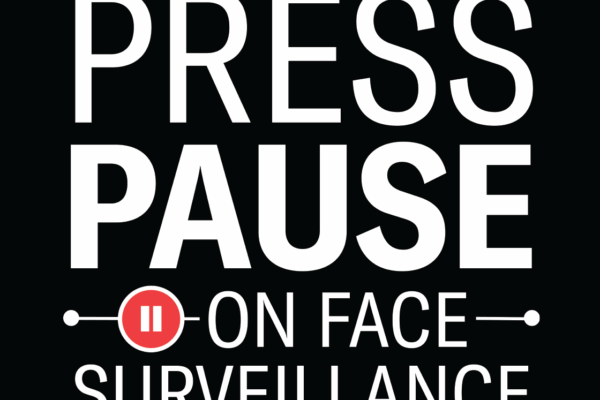The ACLU of Massachusetts, Encode Justice, and Student Immigrant Movement today launched a Student Week of Action to highlight the dangers posed by the use of face surveillance technology in schools.
Beginning today, Massachusetts students will participate in a coordinated week of action, calling for state legislation to ensure face surveillance technology is never used by law enforcement to track or monitor people in Massachusetts schools, parks, and other public places. The actions include contacting local legislators in support of An Act to Regulate Face Surveillance (H.135/S.47), engaging peers to take action, and sharing videos on social media to raise awareness.
“Face surveillance technology is dangerous when it works—and when it doesn’t,” said Kade Crockford, Technology for Liberty program director at the ACLU of Massachusetts. “Students shouldn’t have to worry that their every move is being monitored or that their photos could end up in a police or immigration database simply because they came to class. Massachusetts lawmakers must protect students, teachers, and families from this invasive, biased technology.”
Studies show that face surveillance is too often biased and inaccurate, raising concerns about its use to police students of color in the school-to-prison pipeline. The technology is not designed for use on children, leading to higher inaccuracy rates. At the same time, public records obtained by the ACLU show that tech companies are eager to sell face surveillance technology to schools. News reports reveal that Clearview AI, a controversial facial recognition startup with a database of billions of photos scraped from social media and the web, has been tested or implemented in more than 50 educational institutions across 24 states, including Somerset Berkley Regional High School in Massachusetts.
"Including facial recognition in a setting meant to foster growth and learning will only have chilling effects on the students impacted,” said Dara Casey, a youth leader with Encode Justice. “Surveillance and loss of privacy has absolutely no place in school spaces. Here at Encode Justice, we don't support the use of a tool which masks discrimination behind an algorithm. Learning is a fundamental human right. Every student has a right to learn and grow without the fear of being tracked and surveilled.”
“Our organization, led by youth, sees firsthand how young people and their families are discriminated against and criminalized,” said Sabrina Barroso, lead organizer with Student Immigrant Movement. “Schools should be safe places for all young people and their families, no matter their race or immigration status. It’s time to stop face surveillance in schools and other public spaces."
The week of action is the latest effort of the ACLU’s “Press Pause on Face Surveillance” campaign. Launched in 2019, the campaign has built awareness about the civil liberties concerns posed by face surveillance and the need to bring government use of the technology under democratic control. The ACLU backs a new bill, introduced by Senator Cynthia Creem and Representatives Dave Rogers and Orlando Ramos, that would protect millions of people from this intrusive, biased technology. The bill would prohibit government agencies from using face surveillance to track or monitor people in places like schools, libraries, parks, and municipal buildings; require police to obtain a warrant before conducting a face recognition search, except in emergency situations; and establish due process protections for criminal defendants subjected to face recognition searches.
The ACLU is leading a nationwide movement to defend privacy rights and civil liberties against the threat of unregulated face recognition surveillance. As part of ACLU-led campaigns, multiple jurisdictions have prohibited police use of face recognition technology, including San Francisco, Berkeley, and Oakland, California; Boston, Brookline, Cambridge, Easthampton, Northampton, Springfield, and Somerville, Massachusetts; New Orleans, Louisiana; Jackson, Mississippi; Portland, Maine; Minneapolis, Minnesota; Portland, Oregon; King County, Washington; and the states of Virginia, Vermont, and Maine. New York state also suspended use of face recognition in schools and California suspended its use with police-worn body cameras.
For more information about the Student Week of Action, go to: https://www.aclum.org/en/face-surveillance-student-week-action
For more information about “Press Pause on Face Surveillance,” go to: https://www.aclum.org/presspause
Stay Informed
Sign up to be the first to hear about how to take action.
By completing this form, I agree to receive occasional emails per the terms of the ACLU’s privacy statement.
By completing this form, I agree to receive occasional emails per the terms of the ACLU’s privacy statement.



